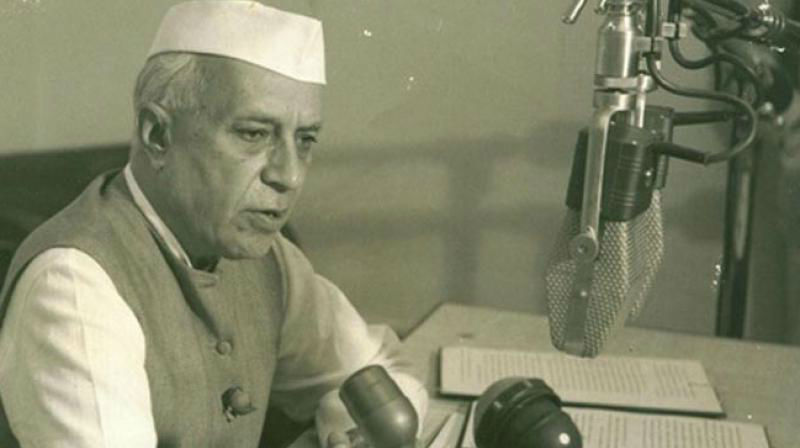A response to Sparsh Agarwal’s recent article in LiveWire ‘Dear Rahul Gandhi, This is Not the Congress that Nehru Envisioned’, published on July 9, 2018.
Quoting Jawaharlal Nehru out of context to add flair and legitimacy to a baseless, unsubstantiated accusation seems to be the trend of the day. So, it is now imperative that we remember these ever-relevant words from the man himself, “A theory must be tempered with reality.”
Change is the law of the universe and we, the Future of India fellows, have witnessed the Congress’ paradigm shift firsthand.
As people who have experienced the programme, we can confidently say that the Future of India Fellowship lives up to its promise of building a meritorious Congress. After going through a highly competitive selection process, we got to be part of a cohort of motivated, committed young individuals from across the country – all with non-dynastic backgrounds.
The fellowship, organised by National Students’ Union of India (NSUI) – the student wing of the Congress party – is a first-of-its-kind programme with no parallel across party lines. It is revolutionary in its vision, exemplary in content and incomparable in outcome. Drawing comparisons with other programmes or interships will simply leave you with egg on your face.
In a recent article, Sparsh Agarwal argued that his interviews for an internship with Indian Youth Congress left him disillusioned with the party – and made him think that it hasn’t really moved away from its much-maligned dynastic culture. However, Agarwal draws a comparison between two completely different programmes, and so, his opinion about this particular fellowship is wholly based on conjecture. He did not interview any of the fellows before he drew his own conclusions about the programme.
Agarwal made his case by listing the types of questions he was asked while interviewing for the summer internship. Here are the only two questions that we were asked as part of the selection process for the fellowship:
- What according to you is a critical public policy challenge facing India and key political dynamics that need to be kept in mind while designing policy situations?
- Why do you want to join this fellowship?
Admittedly, this application process was pleasantly surprising for even us. These questions, and this interview process was instrumental in dispelling the jaundiced perception that associating with the Congress requires a political background.
At no point in the application process were we asked to reveal any information regarding our socio-economic backgrounds.
This change wasn’t limited to the selection process either. As fellows we interacted with several party members – including members of parliament, spokespersons, chairpersons of the social media cells, chairs of the professional congress and legal cell – with absolutely no dynastic background.
Our discussions with these members reflected the structural changes Rahul Gandhi is bringing about within the Congress. All these members shared personal stories which assured us that the Congress is always welcoming of fresh talent. They convinced us that people like us, from un-connected backgrounds, can actively engage in politics and contribute to nation-building in many different ways.
Every single day of the fellowship was designed to be highly interactive and we got the opportunity to meet with senior leaders, including former ministers. It was heartening to see party members actively seek ideas for putting up a more effective opposition to the BJP government. Every suggestion from the fellows was duly appreciated and every question satisfactorily answered – even if it meant going over the allotted time slot by as much as an hour.
The Congress leaders we met with were candid enough to speak about the constraints in which policies are made. They emphasised the open culture within the party which encourages plurality. Party members are free to express views that diverge from the party’s official stance and are not pressured into toeing the line.
We cannot imagine Nehru, NSUI’s founder being unhappy with the dedicated, engaged and passionate volunteers that run this organisation today. The entire programme was put together by passionate people with no expectation of glory, much less money.
The organisers of the Future of India Fellowship volunteered their time with full knowledge that their only reward would be a programme well-executed. Likewise, aspirants applied in large numbers because they wanted a chance to learn from distinguished speakers, the organisers as well as their peers. Those who were unable to afford the expenses were accommodated for. As I see it, Nehru would have been proud of the NSUI as it stands today.
Today India is at a crossroads, our democracy is under threat and our societal fabric looks set to tear apart as public discourse takes on an increasingly divisive, communal flavour. At this juncture, we can find some resolve in the words of our first prime minister, from his speech about our tryst with destiny, “This is no time for petty and destructive criticism, no time for ill-will or blaming others.”
Written by a recipient of the Future of India Fellowship.

